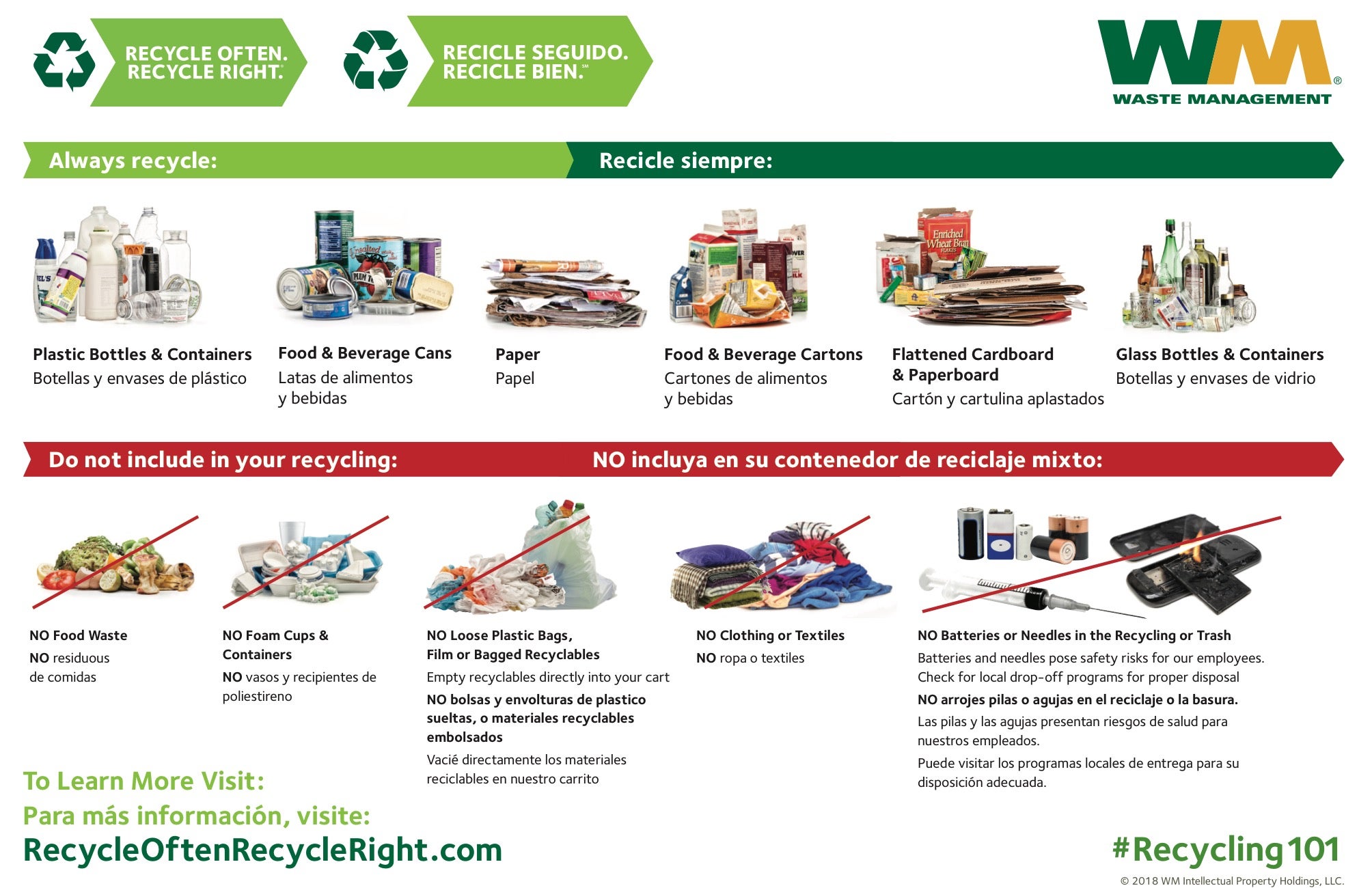 "bobkustofawitshz" (bobkustofawitshz)
"bobkustofawitshz" (bobkustofawitshz)
03/05/2019 at 19:43 • Filed to: Recycling
 0
0
 9
9
 "bobkustofawitshz" (bobkustofawitshz)
"bobkustofawitshz" (bobkustofawitshz)
03/05/2019 at 19:43 • Filed to: Recycling |  0 0
|  9 9 |

Interesting piece on Earther today - apparently our recyclables are too “contaminated” for the Chinese, who have stopped buying large quantities of them, wreaking havoc on the economics of the recycling industry in this country and leading some municipalities to modify or even eliminate recycling all together.
!!! UNKNOWN CONTENT TYPE !!!
Some issues are completely understandable, like plastic bags tangling and jamming the machinery used to sort materials. But then one of the linked !!!error: Indecipherable SUB-paragraph formatting!!! said this:
..when foods or liquids are placed in a recycling container they will ultimately saturate tons and tons of otherwise good paper and cardboard that they come into contact with. When paper and cardboard loses its quality, it also loses its ability to be recycled. It becomes trash.
Which is where I’m genuinely left scratching my head. Why does the cleanliness of the recyclables matter so much? Don’t the metals and plastics ultimately just get melted down, and the paper/cardboard turned into a pulp before reprocessing?
I imagine the chemicals involved in the pulping process would “wash” out any grease left in the pizza box, while the >1200° temperatures needed to melt those aluminum cans would leave little in the way of food residue... what am I missing here?
And since when is styrofoam not recyclable? Wasn’t that like the quintessential example of product that should be recycled so it doesn’t take 10,000 years to decompose in a landfill? Seems to me like recycling technology hasn’t kept up with the times.
 CarsofFortLangley - Oppo Forever
> bobkustofawitshz
CarsofFortLangley - Oppo Forever
> bobkustofawitshz
03/05/2019 at 20:20 |
|
Judging by how many plastic bags I see in our complex’s green waste bins, I’m not shocked.
 4kc
> bobkustofawitshz
4kc
> bobkustofawitshz
03/05/2019 at 20:34 |
|
almost all articles I’ve read about our recycling problems in America are opinion pieces by people who rinse their seltzer water cans. Paper gets processed so much it being dirty doesn’t matter. Plastics get all melted down and sorted by weight/density. The suggestion that so much more human energy needs to be expended to recycle properly is ridiculous. Styrofoam is recyclable, just that it’s volume vs density makes it unreasonable to do so in a profitable way.
The real problem is all the businesses who were making money before by getting paid to take it away and then selling it downstream. Of course they’re going to charge as much as possible and demand “higher grade” when they’re the area monopoly. We have very few actual processing places in the US. Other countries spend monies on their recycling because it’s a necessity. We just dig more trash holes.
The China thing is more of a statement of “We won’t take the US’s shit anymore” than anything else.
 BaconSandwich is tasty.
> bobkustofawitshz
BaconSandwich is tasty.
> bobkustofawitshz
03/05/2019 at 20:55 |
|
I like my terrible idea:
1. Put all plastic/cardboard into a large sealed container
2. Evacuate the air, and crank up the heat, high enough to break it down into simple hydrocarbons
3. ???
4. Extract hydrocarbons to make more plastic/fuel.
Yeah, it takes more energy than it produces in fuel, but it’d be a reasonably easy way to process stuff like plastic bags and other potentially contaminated plastics.
 facw
> bobkustofawitshz
facw
> bobkustofawitshz
03/05/2019 at 20:58 |
|
Making people carefully sort/clean their recycling isn’t going to work in the current system. Obviously recyclers would like to have it done, but ultimately, if it’s too much work, people will toss things. So you are left with several choices:
Single source everything. Let people throw stuff away, sort/clean it as desired at the landfill. This is of course costs more, but is the most user friendly solution (and you are paying lower skill/wage workers which makes more sense economically).
Charge people for trash. I’ve lived somewhere where trash “metering” was done (you had to buy trash tags and put them on your trash cans). This creates incentives to make less trash, but it’s a regressive tax, which is undesirable in itself, and means that you’ll have a hard time influencing the behavior of the wealthy without really hammering the poor.
Expand deposits to cover more recyclables. Deposits, even though they’ve been inflated away to practically nothing are surprisingly effective. On the down side, you’d need a lot more infrastructure for collecting those deposits and verifying they are suitable. As with the above, it’s hard to have a target that encourages both the poor and the wealthy, though the fact you get the money back helps mitigate this.
Inspect trash and recycling and punitively fine people who don’t sort/clean appropriately. This would likely be effective, but would be resoundingly unpopular.
Tax landfill more heavily so that trash collectors have a market based incentive to process more recycling to save on landfill fees (even if they are losing money on recycling). Alternatively, just wait and assume landfill becomes more expensive as acceptable sites are filled. Either way, this will make garbage more expensive, but doesn’t force people into specific actions.
Probably other options I didn’t think about. They key thing is that telling people they have to sanitize and sort their recycling is a good way to have it end up in the trash instead, unless you set up some incentives for them to do other wise (or just take care of it for them) .
 Liam Farrell
> bobkustofawitshz
Liam Farrell
> bobkustofawitshz
03/05/2019 at 21:10 |
|
So in the article they were mostly talking about single stream recycling (everything goes in one bin), this limits the types of item being recycled. Where I go to school we can only recycle #1,2, and 6 plastics, but all the other plastics that get recycled that aren’ t those three are considered contaminants, which goes to their concept of “ aspirational recycling”; People are recycling things that they think are recyclable, but actually aren’t. Examples of those are- Paper coffee cups, bubble wrap envelopes, plastic or wax coated boxes , and paper towels. Many items are recyclable on their own, like Styrofoam , but they shouldn’t be mixed in with single stream recycling.
The other subject they touch on is waste-to-energy incinerators, which just burn all the trash and recycling in them, but because garbage is so wet, it needs a lot of fuel to combust, whether it be methane, natural gas, or another fossil fuel.
Recycling with single stream is easier and creates much more, but the problem is educating the population what can’t be recycled. There’s a considerable amount of recycling ending up in landfills, because it’s too expensive to recycle it and there’s nobody that will take it.
 gmporschenut also a fan of hondas
> bobkustofawitshz
gmporschenut also a fan of hondas
> bobkustofawitshz
03/05/2019 at 21:11 |
|
Don’t the metals and plastics ultimately just get melted down
Less so for metal, but for plastic that material needs to be pure or the food particles end up contaminating the bulk material. Why they don’t want oil or soap containers.
As for paper any food item are going to get blenderized into the paper, producing an inferior product.
 user314
> bobkustofawitshz
user314
> bobkustofawitshz
03/05/2019 at 22:40 |
|
Yeah, we started this nonsense at the beginning of the year. A bunch of neighborhoods in the south hills of PGH switched to WM, and the change in rules was not well received.
WM will not accept any plastic other than #1 or #2 bottles (no berry boxes, for example), which must be cleaned. No glass, no “ contaminated ” cardboard, nothing in bags. Cans must be washed. Everything must be in their cans (which they’re providing, too be fair) so they can do automated pickups.
Ne t result - less recycling.

 SilentButNotReallyDeadly...killed by G/O Media
> bobkustofawitshz
SilentButNotReallyDeadly...killed by G/O Media
> bobkustofawitshz
03/05/2019 at 22:52 |
|
Recycling is broken. Mainly because we in the West found that it was cheap and effective to export our waste materials to willing buyers in China rather than think longer term and process these resources in our home countries for our own re- use.
When the Chinese got sick of being sold a poor quality resource especially when they know a better quality resource is available ...they decided to no longer buy the rubbish. And Australian and clearly American recycling processors copped it in the teeth.
Recycling is broken because we are short sighted, lazy and stupid.
 smobgirl
> bobkustofawitshz
smobgirl
> bobkustofawitshz
03/05/2019 at 22:58 |
|
My neighbor stole my recycling bin and fills it with shit that they won’t even take in the trash here - car parts, empty oil/coolant bottles, etc. Pretty sure he’s just hoping I’ll be the one fined if he gets caught, and he always takes the c an back the second it’s emptied so I can’t steal it back.